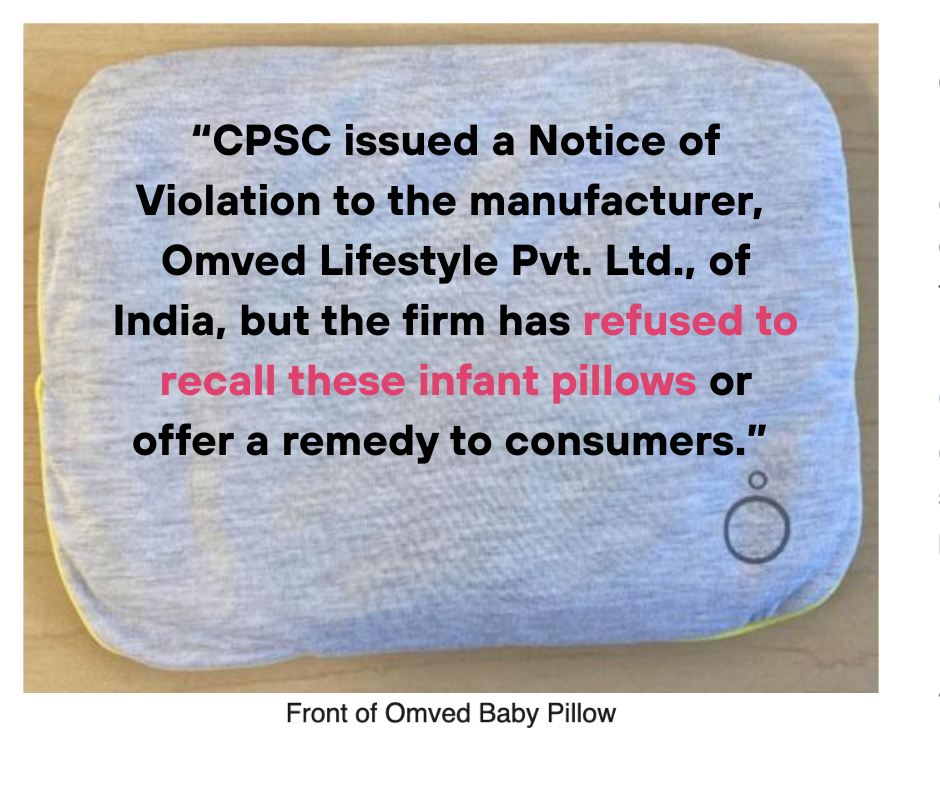CPSC Ban and Recall of Inclined Sleepers
Last updated May 1, 2025– The CPSC Ban and Recall of Inclined Sleepers began in 2022 but many unsafe sleep surfaces are still sold for newborns and infants are still for sale. Here is a breakdown of what products are unsafe and why.
Key Takeaways:
- Inclined Infant Sleepers which do not meet federal safety standards are still sold. Products made outside the US willingly sell unsafe products until the US steps in. Even then the order to stop selling infant sleepers is ignored.
- Many products are still sold on secondary markets such as Facebook Marketplace, TJ Maxx or via consignment shops.
- Infant deaths from CPSC data were not caused by parent misuse of the products.
- With the Trump Administration gutting health and safety agencies, new safety data will not be available.
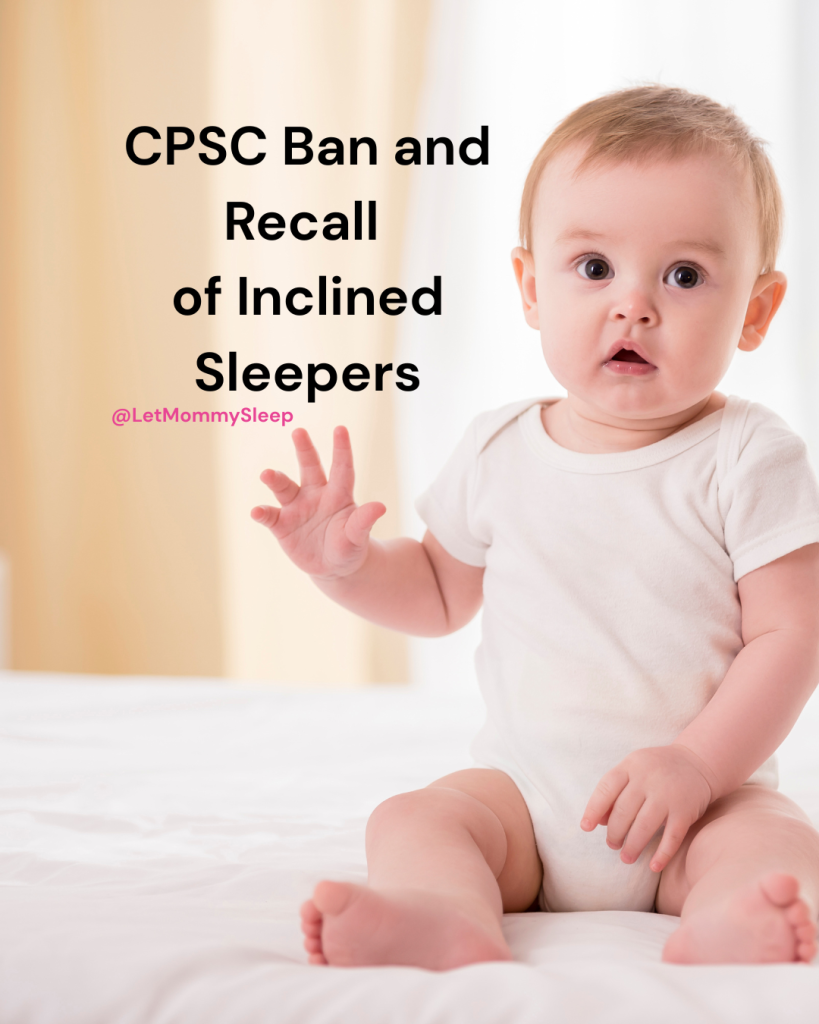
Beginning in mid 2022, any product intended or marketed for infant sleep must meet a federal safety standard. This sweeping change was the culmination of years of recalls, complaints, and government investigations into unsafe infant products such as inclined sleepers, rockers, nappers, and pillows.
CPSC Ban on Inclined Sleepers – A Quick History
In January 2023, the Consumer Product Safety Commission and Fisher-Price re-announced the Recall of Rock ‘n Play Sleepers. The announcement originally happened in 2019 and soon extended to other brands of newborn and infant items.
Since the 2019 recall, approximately 70 more fatalities have been reported. How could this happen?
- It’s almost impossible to enforce recalls at secondary retailers like TJ Maxx, Amazon resellers or Facebook Marketplace. Seeing these items for sale, it’s fair that parents would assume the problem was fixed, or for a different product.
- People who didn’t have babies in 2019, were unaware of sleepers being pulled from stores.
- Some products re-branded. In one instance, the manufacturer Baby Delight continued to sell its Nestle Nook. They simply changed the name.
Whatever the reason, it is crucial to know that while the CPSC cannot confirm the circumstances of every single fatality, the recalls happened because products marketed as “infant sleepers” are inherently unsafe.
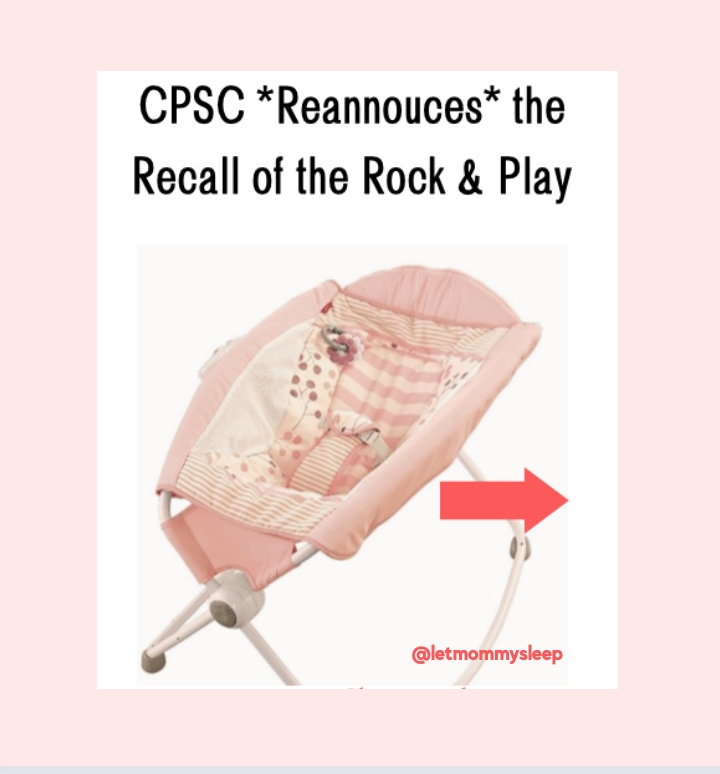
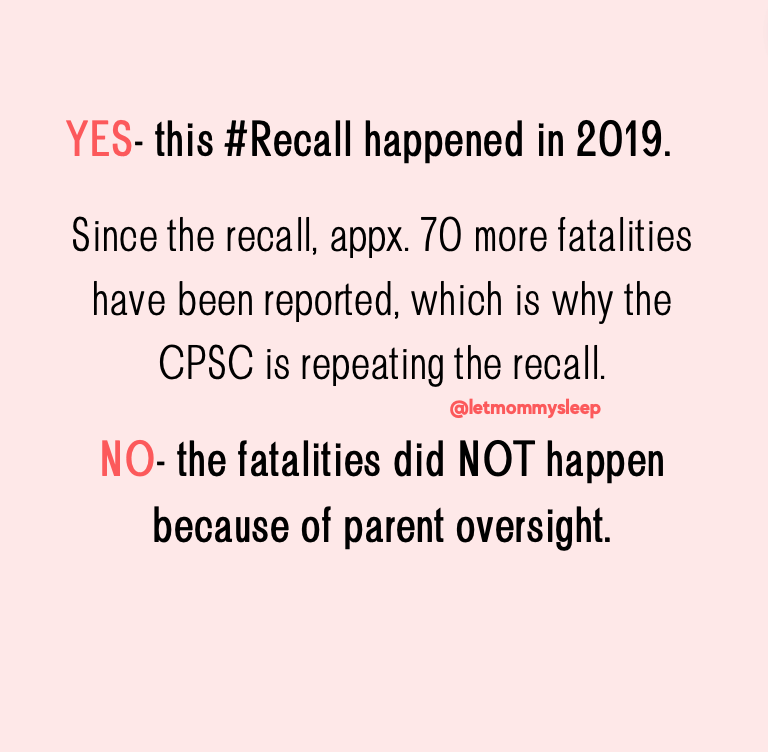
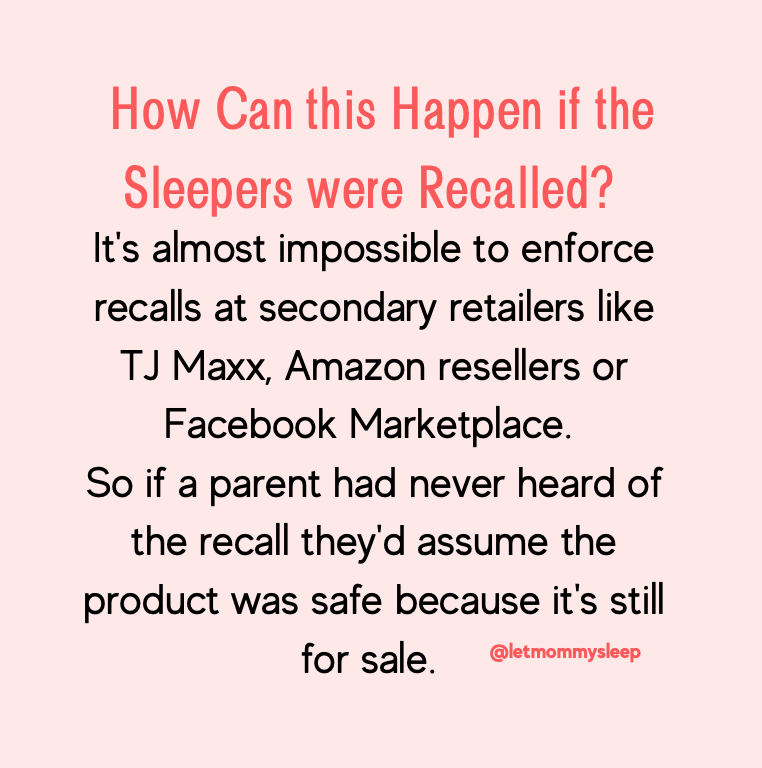
On June 7, 2021, Fisher-Price was finally made to answer for keeping the RocknPlay on the market. A bi-partisan House Oversight Committee asked company officials how the products could remain on the market, after not only ignoring safety warnings, but also knowing that infant deaths occurred as a direct result of using their product. Additionally, Rep. Michael Cloud (R-Tex.) pointed out, Fisher-Price only consulted with “one doctor with a checkered past before marketing the Rock ’n Play.”
These findings resulted in the ban on products being marketed as infant sleepers.
CPSC Ban and Recall of Inclined Sleepers – Now What?
- Incline sleepers like the RocknPlay are banned for sale as sleep devices. They have been since 2019.
- There are options to get more sleep without these devices though.
- Consumer Reports explains why it’s okay for baby to fall asleep in a car seat but not a sleeper, below:
To learn how these products came to market and stayed there for 10 years, see the continuing must-read Consumer Reports research.
Rachel Rabkin Peachman, Deputy of Special Projects at Consumer Reports answers your questions.
Why are sleepers being banned now, specifically? Did parents not follow product directions?
The Consumer Product Safety Commission has warned against using infant inclined sleepers, and the agency has voted in favor of banning the entire category because the products increase the risk of infant suffocation and death- -NOT because the sleepers were misused by caregivers. Infant inclined sleepers have been linked to deaths even when the products were used according to the company’s instructions—and even in cases where the baby was buckled into the restraint system and did not roll over.
The products are inherently unsafe for infants due to their design:
- First, the products go against the safe sleep recommendations from the American Academy of Pediatrics, which state that babies should be put to bed alone, unrestrained, on their backs, on a firm flat surface that is free of soft padding. Inclined sleepers like the Rock ‘n Play Sleeper are not flat, they have restraints, and they have padded sidewalls.
- Second, babies heads are heavy in proportion to their body size and neck strength, and the product’s incline enables their heads to slump forward—often chin to chest or chin to shoulder—which compresses the trachea and blocks airflow. The lack of oxygen can lead to suffocation.
- Third, the shape of many inclined sleepers enables babies to roll over earlier than they would typically on a flat surface (see below). And once they roll over in an inclined sleeper, they typically end up with their faces pressed against the soft sidewalls of the sleeper or pressed against the padded headrest of the sleeper, both of which can block airflow to the nose and mouth. Infants don’t have the strength or coordination to turn themselves around and move into a safe position that allows them to breathe.
We will continue to share and update infant health and safety evidence via our website. To learn more about safe sleep for babies, please visit 10 Steps to Safe Sleep for Baby.
